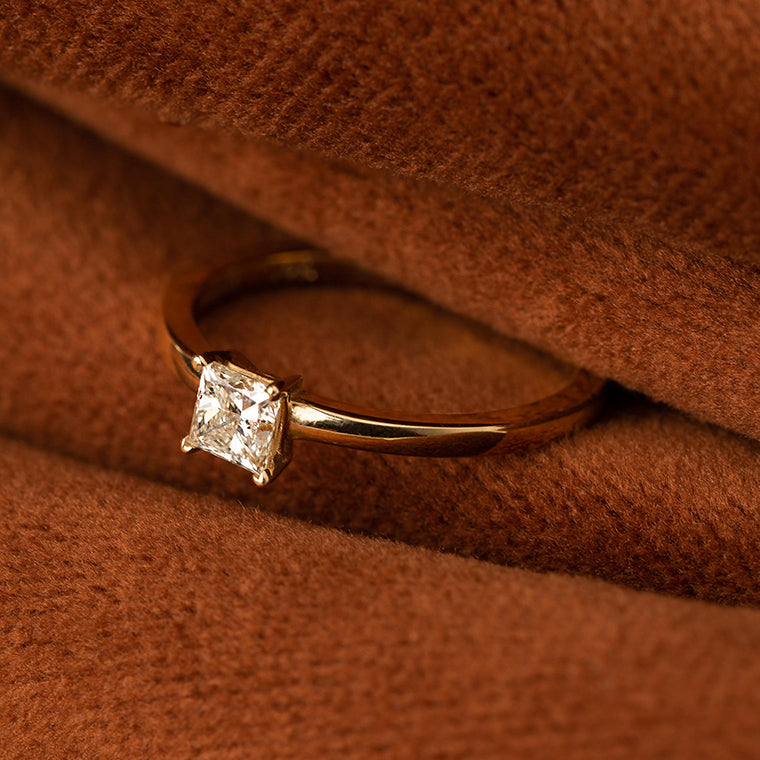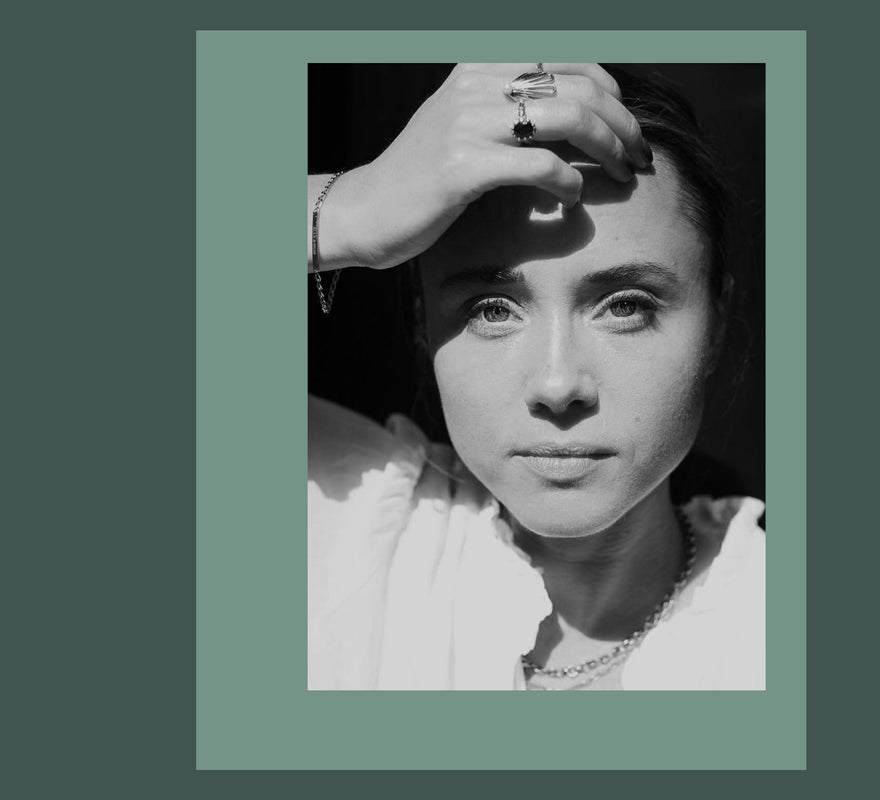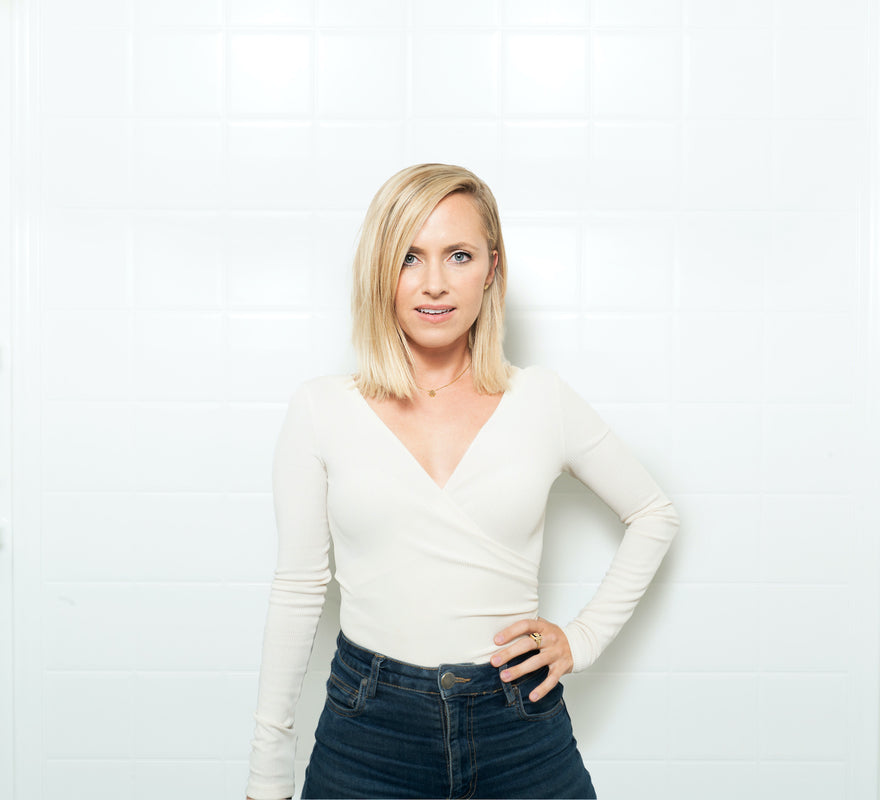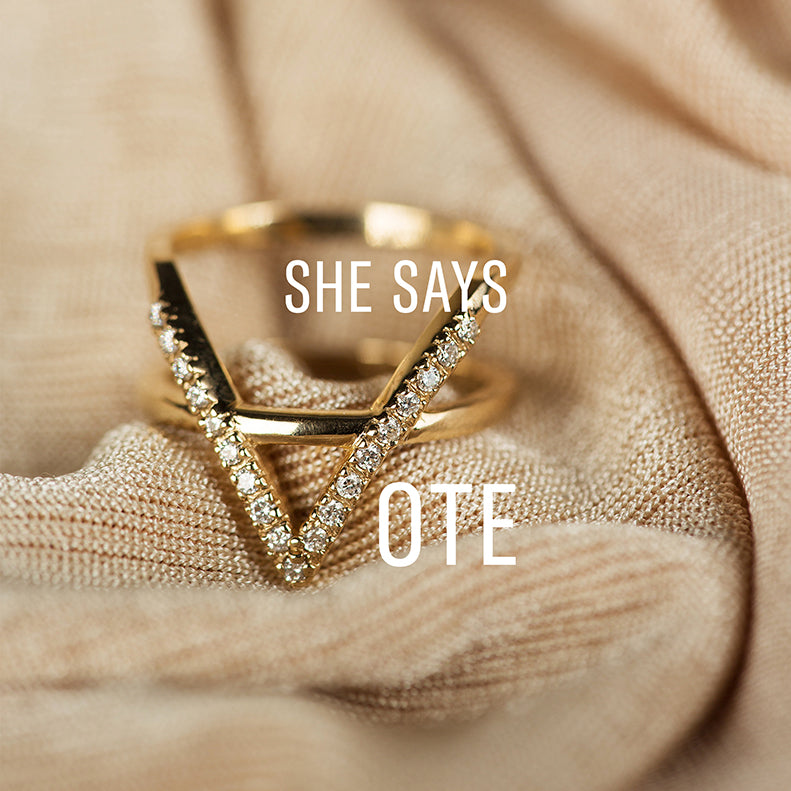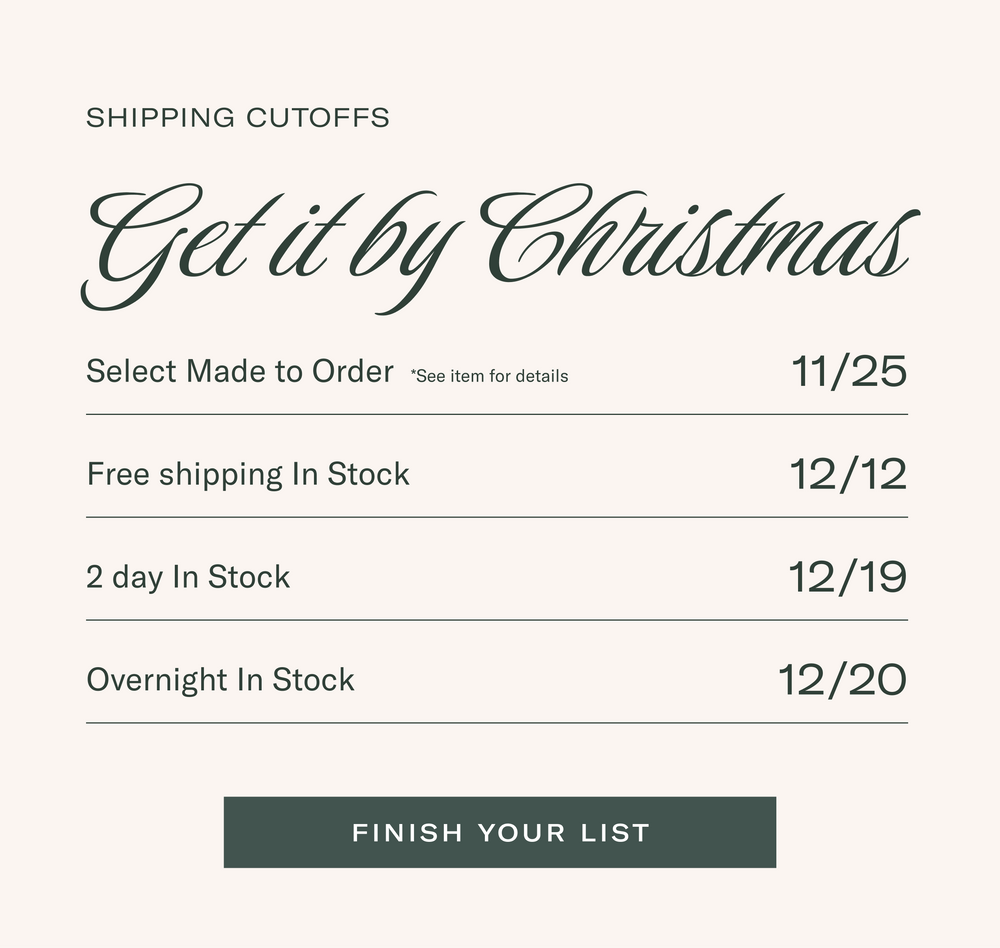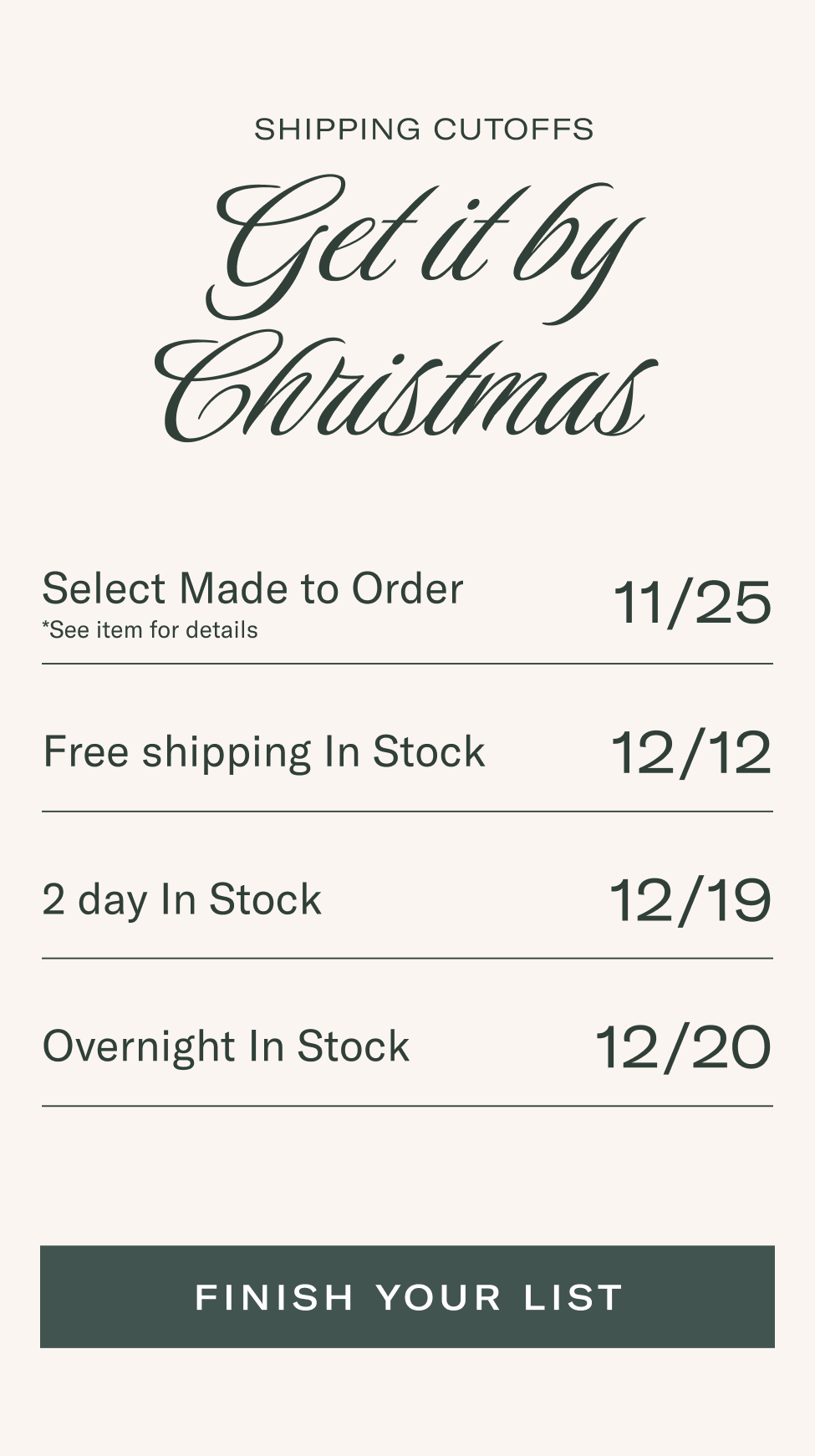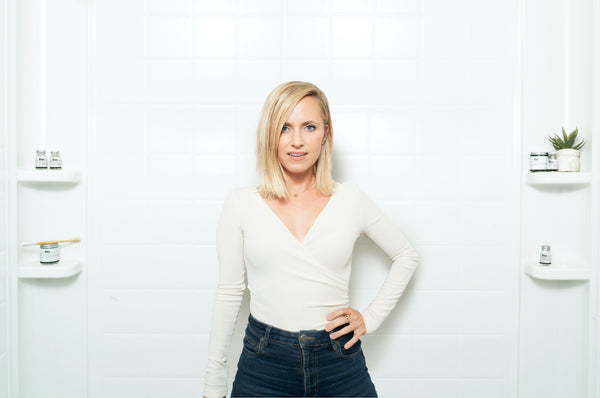
Lindsay McCormick, an entrepreneur residing in Southern California, is reinventing the oral care game with her sustainable, clean ingredient toothpaste tablets – Bite Toothpaste Bits – aimed at eliminating the over one billion plastic toothpaste tubes that end up in our landfills and ocean every single year. Lindsay is vocal about our planet's plastic crisis and the importance of sustainability in our daily routines. We sat down with Lindsay to dig deeper into what it means to have a sustainable lifestyle. Here's what she had to say...
1. What are some good resources you recommend for people to learn more about sustainability in their everyday lives? I love Instagram, YouTube and most recently Tiktok. There are so many tips and tricks that are so helpful! I also love showing the daily changes I’m making both through my personal social media and on Bite’s and it’s been really fun building a community of other people living a more low waste, sustainable lifestyle and growing together.
2. Do you have personal rules that you keep in mind when buying products (i.e. no plastic, no harsh chemicals, buy local, etc) I run every purchase I make through these three filters - 1. Is this vegan and cruelty free? Raising animals to be used in products takes an incredible amount of resources. 2. What’s it made out of? I scan the ingredients for any red flags or harsh chemicals that I wouldn’t want to use on my body or contribute to our waterways. 3. What’s the end of life for this product? Can I reuse, compost or recycle the packaging or are there more sustainable options?
3. Sometimes people who want to make a drastic change into living fully sustainable are halted by economic limitations, what would be the best approach to have a sustainable home on a budget? Truly sustainable and ethically made products are usually more expensive but it’s not because these brands want to be out of reach to people. Paying fair wages for labor, using sustainably sourced, high quality ingredients and glass or aluminum packaging costs more and it’s often not possible compete in price with the brands who don’t prioritize these things. The upside is, many of these products will also last longer or are more healthy for you which will save you money in the long run. I try to divide things up into what I can save on (I make my own apple cider vinegar facial toner and reuse pasta jars for leftovers and bulk food so I’ve never bought food storage jars) and things that I need to spend on (ethically made clothing when I can’t find what I need second hand, personal care items that I can’t make myself) - that way I have a balance of saving and spending that evens out for my budget.
4. Harsh chemicals are typically found in cleaning products, what are some clean options that you recommend (creating your own detergent/soap, switching to a clean alternative, etc)? My everyday cleaner is Dr Bronner’s liquid castile soap diluted with water. I love that I can use it all over, no need for separate cleaners and it’s super concentrated so one bottle will last me over a year. I use Supernatural when I’m feeling fancy. They make natural cleaning concentrates in glass bottles that smell so good, I sometimes wipe down our counters just because I’m obsessed with the smell.
5. What are your tips for minimizing waste in the home (switching paper towels for small cloths that you can clean and reuse, creating a compost bin)? There are so many things you can do at home to be more sustainable! A few changes that are easy with high impact are switching out paper towels and paper napkins for cloth ones, signing up for a bamboo toilet paper subscription and putting in an easy-install bidet (sounds weird but once you try it, you’ll never go back) and either composting or signing up for a compost pick up service like Compostable LA if your area has one.
6. What are some red flag ingredients to look for when out buying products? Petroleum derivatives like propylene glycol, “fragrance” which brands can use in place of having to list harmful ingredients, harsh chemicals and skin irritants like sulfates, phthalates, preservatives.
7. Your love for nature, animals, and the environment has been prevalent since you were little. What advice do you have for people who want to have a stronger connection with the Earth but didn't have the opportunities to be as exposed to nature and feel like they missed out? I feel so lucky to have been able to grow up with close connection to nature but it can be as simple as taking a walk outside or a weekend in nature to feel connected with the Earth - it’s important is putting your phone down and really soak in the moment. I find it also helps to follow earth-focused Instagram accounts and watch documentaries that are constantly showing the wonders of our world. It’s never too late to fall in love with our planet and it’s never been more important!
8. When talking about sustainable changes in lifestyle we are focusing on our individual impact on the environment. It’s known that the biggest pollutants are mega corporations so how do we not get discouraged about our individual efforts in bettering the environment when big corporations are not changing also? It’s so important to be able to hold both ideas at the forefront of our minds at the same time. We need to be able to look at our direct individual impact and make changes ourselves in our every day lives and we need to hold big businesses accountable for the damage they are causing and vote people in who will make sure that happens. Voting matters. Where we spend our money matters. Who we vote for has a direct impact on what laws get passed and what gets protected, big corporations need money from customers to survive so if buyers spending habits change, they will be forced to change too. I didn’t really understand this until one of the biggest toothpaste companies launched a plastic free toothpaste tablet this year to compete with us. I get that most business owners would be scared if that happened in their space but really, I’m in awe. The world needs less plastic, we need better solutions and if my little company can push a giant, we all have way more power than we know.
9. In order to make changes into a sustainable home, where do you recommend starting (i.e. kitchen products, laundry products, eliminate plastic, eliminate paper products)? I recommend starting where you create the most waste each day. For me, that’s my personal care routine. I’m a surfer so I wear sunscreen every day and need serious moisturizers for my skin with all that sunshine and salty air. I switched to lotion bars, mineral-based SFP, I use a facial cleanser in a glass bottle and Bite Toothpaste Bits with my bamboo brush, floss and mouthwash. Personal care is an easy and high impact place to start because you use the same products every single day and there are some really great options that work just as well or better as their less sustainable alternatives.
10. What do you think are the first changes to be made when creating a more sustainable home? It doesn’t matter what change you make as long as you make it today. It’s not about just going out and buying the trendiest “sustainable swap” and it’s not about doing it all at once. It’s about finding that one place where you can make that one change and doing it right now. Because once you make that one change, it will be easier to make the next one.. and the next one. And that’s how how you create sustainable habits that become a sustainable life. Easy, right? ;)


